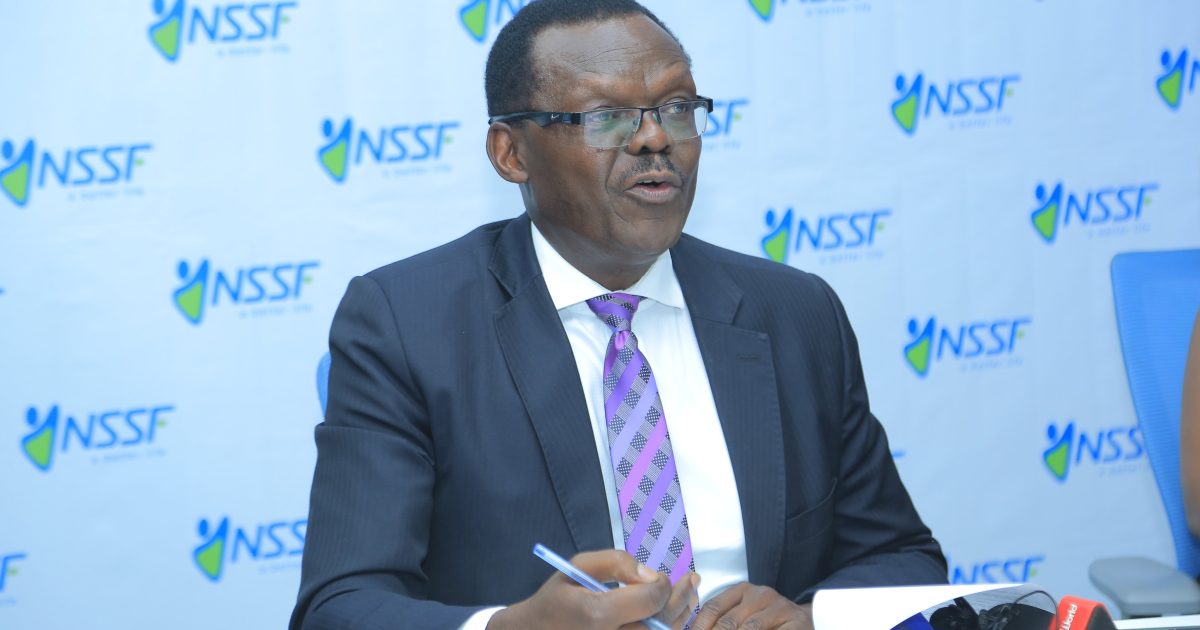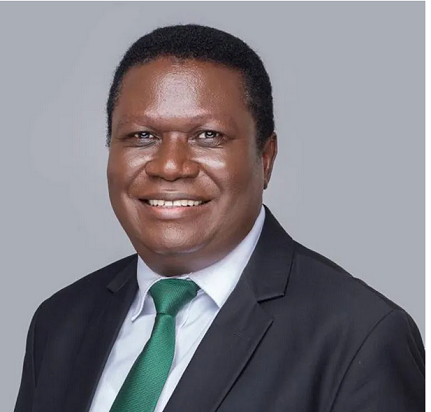Ayota addressing the press
The National Social Security Fund (NSSF) expects to collect Shs700 billion monthly from mandatory contributions as more employers are set to be tapped following the amendment to the NSSF Act.
In January 2022, President Yoweri Museveni assented to the National Social Security Fund (Amendment) Act. The Amendment provides for mandatory contributions by all workers regardless of the size of the enterprise or the number of employees (Sections 7 and 13 A).
Following this, a number of companies totaling to 3, 200 have complied since January last year, contributing about Shs6 Billion – between June 2022 and January 2023 (with 56% of these being those with less than 5 employees).
Now, the NSSF in a new drive targets 50, 000 enterprises and 1.2 million employees in the next 5 years. Once this target is met, this means that the Fund will collect Shs 700 Billion per month (from the new enterprises alone as projected).
While addressing the media Tuesday at Workers’ House in Kampala, NSSF Acting Managing Director, Patrick Ayota, said unlike in the past when the definition of an employer was ambiguous, the Act, as amended, now provides clarity on who is eligible to pay NSSF for their employees.
In a drive towards the above target, Ayota announced a 30-day (ending April 28, 2023) window to allow for voluntary compliance after which, a penalty will apply.
The drive targets the Government, a company registered or incorporated under the companies act, 2012; a partnership registered under the Partnership Act, 2010; a trustee incorporated under the Trustee Incorporation Act, Cap. 165; a business registered under any law for the time being in force governing the establishment of business entities; the government body of an unincorporated association; and a manager or a sub-contractor who provides employees for the principal contractor.
“We believe this is an opportunity for every Ugandan worker whether in the formal or informal sectors to take advantage of the new legal regime to save for their social security. The Fund is the most viable means for workers to actualize this,” Ayota said, adding that this is a multi-stakeholder initiative between the Fund, the government through the Ministry of Gender, Labor and Social Development, the private sector, regulatory bodies, and other partners.





